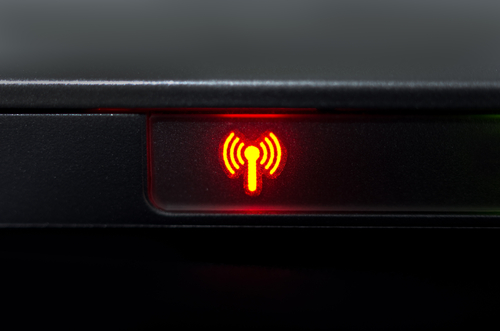

Researchers at the Massachusetts Institute of Technology (MIT) have demonstrated technology that allows commercial Wi-Fi routers to track users’ physical location with an accuracy of tens of centimetres, opening the way for applications in home utilities, drones, commercial Wi-Fi and elsewhere.
Typical current Wi-Fi-based positioning systems require the use of four or five access points, in order to locate users based on triangulation techniques.
The new system, called Chronos, adds time-of-flight calculations – measuring the time it takes for a transmission to travel between the user and the access point – meaning it needs only a single Wi-Fi router to work.
Other uses include allowing drones to maintain a safe distance from humans and making home heating and cooling systems more intelligent.
“Imagine having a system like this at home that can continuously adapt the heating and cooling depending on number of people in the home and where they are,” professor Dina Katabi, who led the research, told MIT.
The system could be used for situations where other types of sensors are limited or aren’t present, such as finding lost devices or maintining formations of fleets of drones, Katabi said.
The researchers at MIT’s Computer Science and Artificial Intelligence Laboratory (CSAIL) demonstrated Chronos in a two-bedroom apartment with four occupants, showing that it could correctly identify which room a user was in 94 percent of the time.
In a coffee shop, the system was 97 percent accurate in distinguishing those in the shop from those outside, and when built into a drone it allowed the unit to maintain a safe distance from its user with a margin of error of about four centimetres.
The researchers said their system is 20 times more accurate than existing time-of-flight techniques, computing with an average error of 0.47 nanoseconds.
They faced a technical hurdle in screening out delays caused by signals bouncing off walls and other factors, but were able to write algorithms to screen out such delays with a high degree of accuracy.
“Our implementation on commodity Wi-Fi cards demonstrates that Chronos’s accuracy is comparable to state-of-the-art localisation systems, which use four or five access points,” wrote PhD student Deepak Vasisht, first author of the paper detailing Chronos.
Vasisht presented the paper at the USENIX Symposium on Networked Systems Design and Implementation in March, according to MIT.
Wi-Fi and mobile networks already implement a degree of user tracking, used by service providers for marketing and commercial purposes, and consumer organisations have recently called for tougher regulations protecting this location data.
Do you know all about the Internet of Things? Take our quiz.
Deliveries of Telsa's 'bulletproof' Cybertruck are reportedly on hold, amid user complaints side trims are…
New feature reportedly being developed by Apple for iOS 19, that will allow AirPods to…
Binance BNB token rises after WSJ report the Trump family is in talks to secure…
After failed Amazon deal, iRobot warns there is “substantial doubt about the Company's ability to…
Community Notes testing across Facebook, Instagram and Threads to begin next week in US, using…